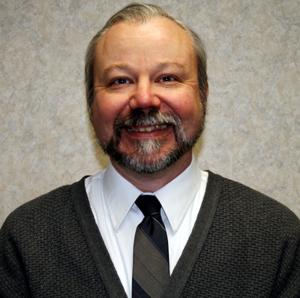
By Deacon Frank Agnoli
(Editor’s note: The publication of the third edition of the Roman Missal provides a great opportunity for each diocese, parish and individual Catholic to grow in their love for — and knowledge of — the liturgy. In this series Deacon Frank Agnoli, the Davenport Diocese’s director of liturgy, reflects on the parts of the Mass.)
Profession of Faith
By proclaiming the Creed, we remember not only what God has done in the past, but who we are. In the new translation, we begin the Creed with “I” instead of “we.” We are reminded that we need to take personal ownership of our faith; we believe as individuals. Just like at the Easter Vigil or on Easter Sunday when we renew our baptismal promises, and just like we take personal ownership of our vows (“I do” not “we do”) and our sinfulness (“I confess” not “we confess”), we speak for ourselves at the Creed. At the same time, we are also reminded that we are not saved as isolated individuals. We are part of the body of Christ, the Church. The “I” refers to us as individuals as well as to the Church as a whole. We are saved; we journey to God, together.
Prayer of the Faithful
And, together, we raise our voices in prayer. Baptized into Jesus Christ, we share in his priestly office of offering praise and thanksgiving to the Father, and of interceding on behalf of the world.
It is important to keep in mind how the Prayer of the Faithful is structured. The presider first addresses the people, inviting them to prayer.
Next, the deacon (or, in his absence, another minister) announces the intentions. We call these “general” intercessions because they ought to be petitions that the assembly can, by and large, agree on, and because they do not focus on the needs of any one individual.
This is not the time for a “mini-homily,” the place to make a particular point; or to tell God how to answer our prayers. It is neither the time to pray for an unknown “special intention” (to which the assembly cannot assent) nor to offer prayers of thanksgiving (the Eucharistic Prayer makes that part of its structure and focus).
Rather, we are called to imagine the reign of God as proclaimed in the Scriptures and give voice to what we see: a world of justice, a world where the hungry are fed and the sick made whole, a world where death and tears are no more. Finally, the presider closes the intercessions by addressing God the Father, through Christ — the one through whom all prayer is made.
Entering the Mystery
Do I really believe what I say I believe? What have I done to learn more about this faith that I profess, about being a Christian?
Do I hear in the Prayer of the Faithful not a list of demands that we make on God, but instead a call to action? If I dare pray for justice, for healing, for the drying of tears — what am I doing, filled with God’s grace, to make those things come to pass?
The Ars Celebrandi
As one who leads prayer, do I let my body reflect what I am doing? Here, as well as throughout the liturgy, do I look at the people when I am addressing them? Where is my gaze when I am addressing God?
As a deacon, does my liturgical role of being the one who announces the intercessions truly reflect my ministry of charity outside the liturgy — that I am the one who knows the cares of the community so well that I can give voice to those needs before God? Or is there a disconnect between what I do within the walls of the church and outside them?








